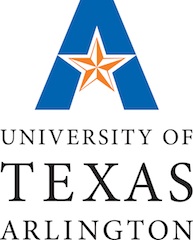 ARLINGTON — The University of Texas at Arlington has met U.S. Department of Education requirements to be considered a Hispanic-Serving Institution, a status that makes it eligible for federal grants supporting and strengthening institutions with large numbers of Hispanic students.
ARLINGTON — The University of Texas at Arlington has met U.S. Department of Education requirements to be considered a Hispanic-Serving Institution, a status that makes it eligible for federal grants supporting and strengthening institutions with large numbers of Hispanic students.
UT Arlington becomes the highest-profile public research university in North Texas to receive the designation and one of about 300 nationally.
“This designation is aligned with the mission of our University, which is to be an internationally recognized research university distinguished by excellence in every regard and by the access we provide to students from all backgrounds,” UT Arlington President Vistasp Karbhari said.
“It builds on the tremendous diversity, talent and dedication of our faculty members and will help us provide appropriate levels of support to ensure that each and every student has the opportunity to excel in all aspects of their academic careers.”
Pedro Reyes, executive vice chancellor for academic affairs for The University of Texas System, said the designation gives UT Arlington a distinct advantage.
“Being recognized as a Hispanic-Serving Institution will provide a host of opportunities for UT Arlington, including eligibility for a number of federal grants that can be used to expand and enhance academic offerings,” Reyes said.
“I am tremendously proud of the diversity represented on our campuses across the UT System and of President Karbhari’s work to provide a first-class education to students from a variety of backgrounds.”
A school must have a Hispanic population of at least 25 percent full-time undergraduate enrollment to qualify for the designation. UT Arlington’s Hispanic population has climbed steadily in recent years as total global enrollment has swelled to about 38,000 students. Hispanic enrollment stands at 25.2 percent of the University’s 25,000 undergraduates.
While the HSI designation does not provide institutions with a direct award, it makes them eligible for funding from specific programs and initiatives aimed at promoting academic success not only for Hispanic students but for all those enrolled at the institution. For fiscal year 2014, the total appropriation for the federal HSI Program is more than $100 million.
Such grants may be used for:
- Enhancement of academic offerings, program quality and institutional stability, all of which benefit the entire student population.
- Mentorship programs to enhance retention and graduation rates of first-generation college students.
- Recruitment of Hispanic students in STEM fields.
- Identification and recruitment of high-performance students from high school and community colleges to create a pipeline to UT Arlington.
- Internship opportunities.
- Recruitment of new international students.
David Silva, UT Arlington vice provost for faculty affairs, guided the application process and said that the status means that the funds are applicable to their work and research needs, too.
“In addition to investing in our students, the HSI designation will provide new opportunities for faculty recruitment, faculty development and early-career scholars, and for strengthening UT Arlington’s community partnerships,” Silva said.
Robert Estrada, a UT Arlington Development Board member and chairman of Dallas-based Estrada Hinojosa & Co., applauded the new designation and called it “a critical step toward providing greater resources and opportunities for all students, including the Hispanic population.”
“This is a clear reflection of the changing demographics of the North Texas region, and I am proud to see UT Arlington pursuing available resources to serve its diverse study population,” Estrada said. “Diversity is part of what makes UT Arlington the world-class institution that it is, and its students and faculty are worthy of additional federal support.”
Antonio Flores, president of the National Hispanic Association of Colleges and Universities, has said that educating Latinos is crucial to future U.S. economic stability and growth. Latinos are projected to make up a majority of the Texas population by 2020 and nearly 30 percent of the nation’s population by 2050.
“We need them to be more educated and more qualified than past generations so that we can sustain the rest of the economy and have the workforce needed to maintain our competitiveness in a global economy,” said Flores, who spoke at UT Arlington April 16 as part of the Center for Mexican American Studies Speaker Series.
Universities must re-apply for the Hispanic-Serving Institution designation annually. To learn more, visit the Department of Education website at www.ed.gov .




